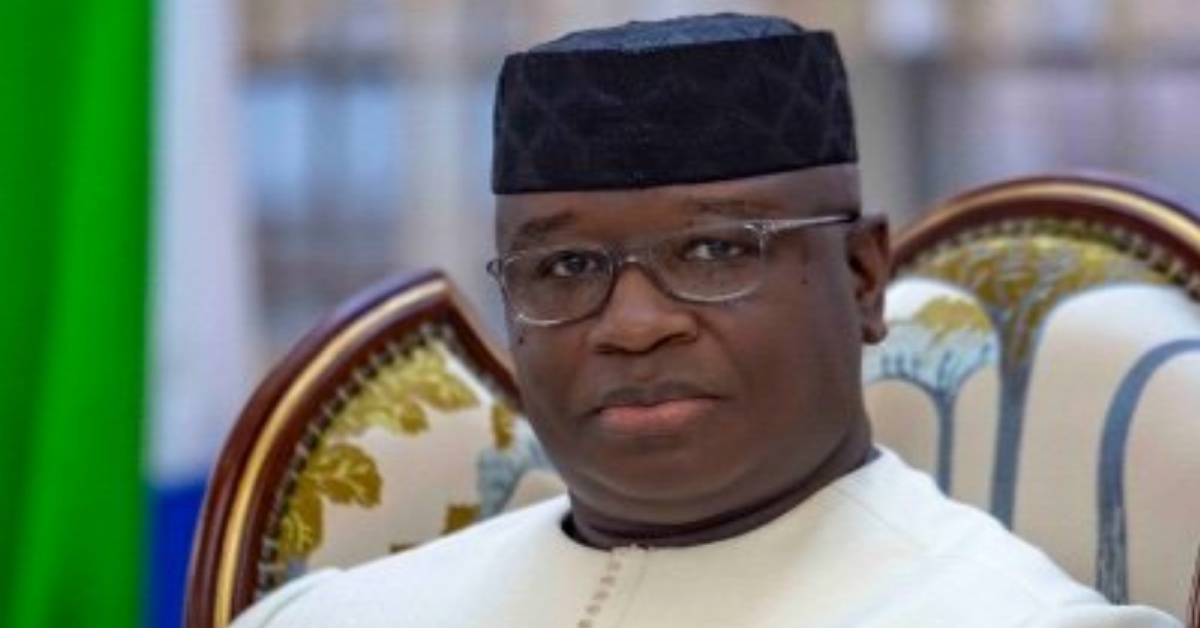Qualification for the Millennium Challenge Corporation Compact Grant seemed a far-fetched idea and pipe dream until Retired Brigadier Julius Maada Bio became president of Sierra Leone in April 2018.
Before his ascendancy to the presidency, the country looked destined for ineligibility due to the malfeasance displayed by the former administration led by Ernest Bai Koroma.
The fight against graft was mere lip service, whilst education was never prioritized and therefore cannot meet the MCC threshold. Energy, which was the flagship of former President Ernest Bai Koroma was a charade.
Then came President Bio and the narrative changed and a different dimension was given to everything about the MCC scorecard. Instead of the country’s scorecard getting more red marks, we started seeing green. It was not by coincidence but a careful design of projects and policies outlined to lift Sierra Leoneans from poverty to growth. After all, the overall objective of the MCC is to work with countries to lift people from poverty to economic growth.
Indicators like the fight against corruption, rule of law, political freedom, health expenditure, girls’ primary education completion rate, primary education expenditure, freedom of information, trade policy, etc started getting pass marks. Under the adroit leadership of President Bio, Sierra Leone passed the MCC scorecard three years consecutively and by 2021, the country was selected for Compact Grant. Almost every indicator progressed every year with improved ratings.
The epoch-making event Sierra Leoneans are about to witness with the visit of the MCC CEO Alice Albright is the testimony of the hard work, diligence, and clairvoyance of President Bio. It is a radical shift from the usual sound and fury but nothing seen to the tangible, visible, physical, and palpable programs and initiatives of a leader who was born to serve and not to be served. President Bio has given new meaning to transformative leadership and has won the admiration of world leaders. He has breathed life into manifesto promises that used to gather dust on shelves.
The visit of the MCC CEO has more significance than one. It is a mark of confidence the United States government has in the leadership of President Bio, and is a testament to the reward for careful planning and effective programming.
The Energy Compact, as our compact is codenamed, is a joint program both the government of Sierra Leone and the MCC have carefully selected. Energy is a major catalyst for growth and has knock-on effects that can impact societies in major ways. But it is also a highly capital-intensive project that eats deep into national coffers. By diverting the MCC grant to energy, the government of President Bio can now use the money it has been using to fund energy programs, for other useful and productive areas like agriculture which he has already declared a flagship in his second term. Energy can ignite growth in several other areas including industrialization and agriculture. It can also improve the quality of life of people, whilst stimulating small-scale businesses.
Already, President Bio’s efforts at reforming Sierra Leone’s energy sector have received rave reviews and national applause. From a mere 258 megawatts of energy production in 2018, to 850 megawatts as at end of 2022; from 740 kilometers of transmission lines in 2018 to over 2000 kilometers at the moment, from a paltry 35% of renewable energy supply in 2018 to 80% renewable energy in 2022, there can only be better news for Sierra Leone when the MCC energy compact is rolled out.
The distant drums of victory in the June 24, 2023 elections are beating and Sierra Leoneans and their foreign friends alike are dancing to it.

 Post a comment
Post a comment








